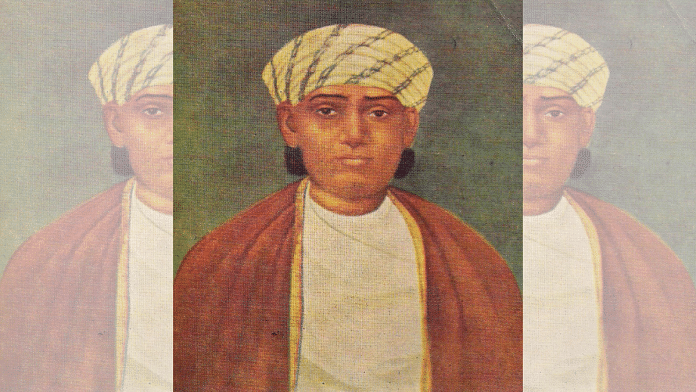Mutty Lall Seal’s rise from a clerk to the richest man in 19th-century colonial Calcutta is a tale straight out of a blockbuster movie. And he channelled a large portion of his wealth toward education, health, and the upliftment of women. Today, the businessman, philanthropist, and social reformer is remembered as the ‘Rothschild of Calcutta’.
“The influence exercised by Mutty Lall Seal in Calcutta hundred and twenty years ago is difficult to realise. It was not only the legitimate influence of wealth; it was the influence of strong will and a sturdy intellect operating on a society different from the present,” wrote Kissory Chand Mitra in his book Mutty Lall Seal (1869).
Humble beginnings
Born in 1792 in Calcutta to a mercantile family or Suvarna Baniks—one of the oldest settlers in Bengal—Mutty Lall Seal had a humble start. Despite having lost his father at 5 and with only an elementary school education, Seal wanted to build an empire from an early age — his innate intelligence and business sense came through at a young age.
At 17, he started doing menial jobs such as working as a clerk at Fort William and later as a customs officer. He also had five sons and five daughters with wife Nagri Dassee.
Seal soon realised that he had greater ambitions than working for the British government. As a result, he gave up these jobs and set up his own business, selling bottles to a booming beer industry in the city.
In the following few years, Seal’s skill at doing business, his loyalty and honesty caught the attention of British businessmen, who hired him to manage their businesses trading indigo, silk, sugar, rice, salt, and other goods. Seal went on to become a financier to roughly 20 first-class agency houses or trading companies such as Leach & Kettlewell, Livingstone, Syers & Co., and Kelsall & Co among others, earning large commissions from each.
Seal also had his eyes on local business and trade — he brought sugar to Ghazipur and silk to Rampur in present-day Uttar Pradesh. He soon outshone his European counterparts in the region and amassed vast wealth and fortune. According to the Bengali daily Sangbad Prabhakar, Mutty Lall owned 200 houses in Calcutta at the time.
In his 1843 book The Stranger in India, British writer George W Johnson talks about Seal’s penchant for gambling. Rich businessmen who placed bets on the racing track would use a popular verse: “Sugar is rising; Silk is likewising; So now let us baboos the joys of sport feel; I’ll not at ledger look; But take my betting-book; Like Radamadub and Muttyloll Seal.”
Philanthropy and women’s rights
Despite occasional losses, the philanthropist and businessman set up numerous charitable institutions, creating a trust worth Rs 30,000 for the poor, orphans, and women who lost their husbands.
Seal set up the Motilal Seal Free College in Calcutta in 1842 to provide education to the poor, donated land for Calcutta Medical College, and established a guesthouse in Belgharia to regularly feed 500 to 1,000 poor people in the city.
Apart from being one of the founding members of Assam Company Ltd, the first company to export Indian tea to the world, Seal also worked toward the eradication of social taboos such as Sati. In a meeting organised by Radha Kanta Deb, the leader of the Calcutta conservative Hindu society, Seal passionately criticised members of the Brahmin community for their lack of sympathy toward women.
He also advocated women’s remarriage after the death of their husband, even promising a reward of Rs 20,000 to the first man who would do it. Seal was instrumental in the passage of the Hindu Widow Remarriage Act of 1856.
The Rothschild of Calcutta was also an excellent writer and well-versed in music and poetry. He often wrote in several Bengali newspapers and magazines on social issues and contributed to the establishment of the first printing press in Calcutta.
Seal died on 20 May 1854 at the age of 62, leaving behind an enormous fortune. “This melancholy event cast a gloom on native society and was regarded as a national calamity,” wrote Mitra.
(Edited by Humra Laeeq)



